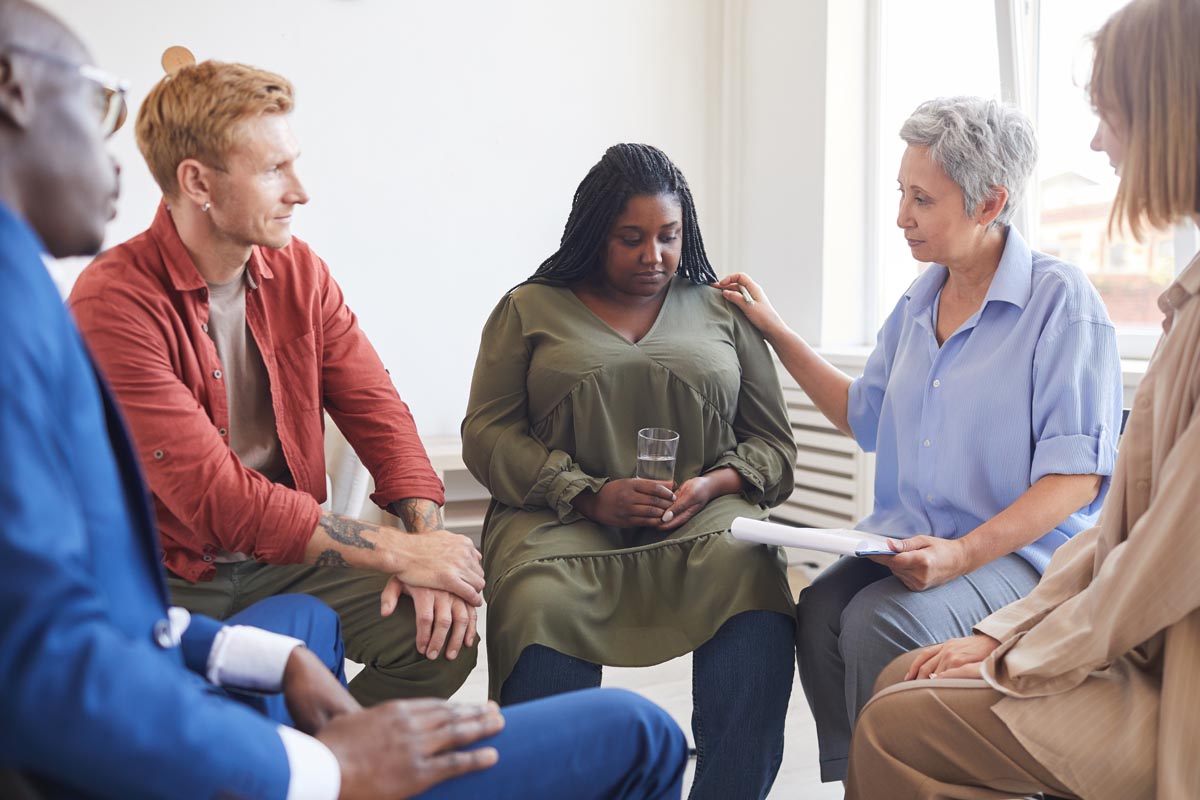Research shows that Massachusetts ranks in the highest nationwide percentile for illicit or illegal substance use.1 The state also falls into the second-highest percentile for diagnosable cases of addiction. If you’re affected by addiction, you need the professional help offered by effective rehab programs. In addition, you will almost certainly benefit from a sober support group. Sober support groups in Massachusetts are a crucial secondary resource for your recovery. This means that knowing where to find them is essential.
At Evoke Wellness at Cohasset, we understand that finding support after rehab can be challenging. Reach out to our helpful staff at 866.931.6429 to find a sober support group in Massachusetts.
What Is a Sober Support Group?
Completion of a rehab program is a major milestone in your efforts to overcome addiction. However, it is not the final step in your recovery. Addiction is a chronic condition, and like all such conditions, it has long-term effects. This means that you must continue to pay attention to it and manage its impact. Otherwise, you may find it more and more difficult to stay sober as time passes.
Sobriety support is designed to help you keep your recovery going strong. It does so by providing the resources you need to continue to stay sober. Examples of these vital resources in a sober support group in Massachusetts include:
- An alumni program for former rehab participants
- Mutual self-help or 12-step groups
- Continuing access to trained addiction specialists
A given program may include some or all of these common options. It may also offer additional forms of support. For instance, some programs provide job resources that help you find stable employment. In addition, there are programs that provide educational support.
Benefits of Seeking Sober Support in Massachusetts
You can benefit from effective sober support in a variety of ways. For example, an alumni program or mutual self-help group can provide you with such things as:
- A safe forum for talking about your experiences with addiction recovery
- The chance to hear about and learn from the experiences of others
- Advice for successfully navigating the ups and downs of sobriety
Whether you speak with them in-person or remotely, addiction specialists can monitor your progress following treatment. If necessary, they can also help you re-enroll in a formal rehab program.
In addition, participation in a sober group in Massachusetts can increase your overall odds of avoiding drugs and alcohol. Even if you temporarily relapse back into substance use, you can still benefit. Support group members who relapse tend to drink or take drugs less often than those not in a group. They also consume substances in smaller overall amounts.
Where Can You Find a Sober Support Group in Massachusetts?
What are your options for a sober group in Massachusetts, and how can you find these options? As a rule, a great place to start is your previous rehab program. Well-designed programs will typically offer sober support as part of their slate of services. You can also search online for sober support in Massachusetts. Top-quality providers will offer a full range of beneficial services. In addition, you can ask your doctor for recommendations.
Seek a Sober Group in Massachusetts at Evoke Wellness
Looking for sober support resources in Massachusetts? Talk to the professionals at Evoke Wellness. We feature a variety of in-house options to help you keep your sobriety on track. Just choose the services that fit your situation.
Evoke Wellness at Cohasset is your ally in substance recovery. We understand what it takes to stay sober both now and in the future. To learn more about our compassionate, customized approach, just call us today at 866.931.6429 or complete our online form.




